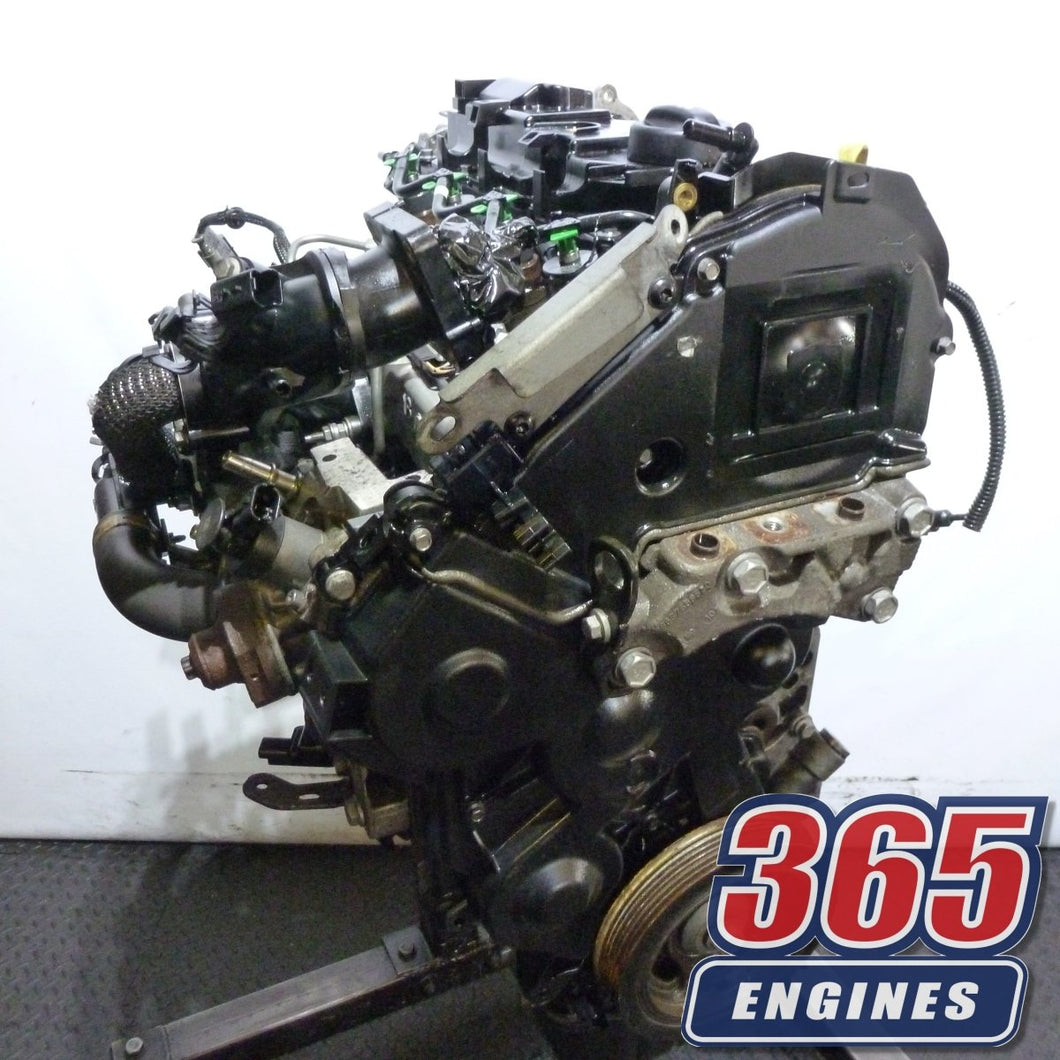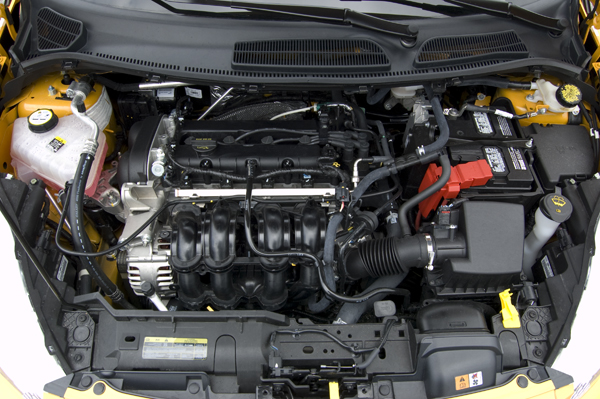How a Ford Fiesta Engine Tune-Up Can Improve Your Car’s Performance
How a Ford Fiesta Engine Tune-Up Can Improve Your Car’s Performance
Blog Article
The Future of Engines: Developments Driving Sustainable Power Solutions
As the auto sector browses the important transition towards sustainability, the future of engines is significantly defined by groundbreaking innovations. Electric engine developments, along with promising advancements in hydrogen fuel cells and biofuels, are improving the landscape of power options. The emergence of hybrid systems better complicates this evolution, providing both possibilities and difficulties to reduce discharges properly. Combined with the assimilation of expert system in engine layout, these technical strides elevate critical concerns regarding their lasting practicality and impact on typical standards. What might this imply for the industry and consumers alike?
Electric Engine Advancement
The development of electric engine growths symbolizes an essential change in the aerospace and auto sectors, driven by the urgent requirement for sustainable choices to fossil gas. This shift is defined by substantial advancements in battery innovation, power electronic devices, and electrical motor design, which jointly enhance the effectiveness and efficiency of electric engines.
Recent innovations have actually led to the production of lighter, much more energy-dense batteries, such as lithium-silicon and solid-state batteries, which guarantee longer ranges and much shorter billing times. In addition, renovations in electric motor efficiency, such as making use of long-term magnets and progressed cooling systems, enable electric engines to operate successfully under differing problems. These improvements not just enhance vehicle performance but likewise add to a reduction in total energy usage.
Furthermore, the integration of advanced software algorithms has optimized energy management in electrical automobiles, enabling regenerative braking and predictive billing approaches. As producers progressively accept electric propulsion, the vehicle and aerospace markets are experiencing a standard shift towards greener technologies. This development not just fulfills governing needs yet additionally lines up with customer choices for eco friendly transport solutions, solidifying electric engines as a foundation of future sustainable wheelchair.
Improvements in Biofuels
As the automobile and aerospace sectors progressively prioritize lasting power sources, advancements in biofuels arise as a corresponding solution to electrical engines. Biofuels, acquired from organic products such as plants, waste, and algae, offer an ingenious opportunity for decreasing greenhouse gas emissions and reliance on nonrenewable fuel sources.
Recent study has concentrated on boosting the effectiveness and sustainability of biofuel production. Second-generation biofuels utilize non-food feedstocks, reducing competitors with food supply and minimizing ecological effect. Developments in artificial biology have actually allowed the engineering of microorganisms to generate biofuels a lot more successfully, leading to higher yields and reduced production expenses.
Additionally, the growth of drop-in biofuels allows for smooth assimilation right into existing infrastructure, allowing a smoother transition for markets generally depending on fossil fuels. ford fiesta engine. These fuels can be utilized in present engines without adjustments, facilitating their fostering across various industries
Investments in biofuel modern technology, in addition to encouraging policies, are vital to drive development and scalability. As the worldwide community looks for to battle climate change, biofuels use a pragmatic, prompt remedy that straightens with the overarching goal of sustainability in transportation and aeronautics.
Hydrogen Gas Cell Technology
An expanding number of firms and scientists are checking out hydrogen gas cell technology as a feasible choice to standard power sources in transport and energy systems. This modern technology transforms chemical energy from hydrogen right into power through an electrochemical reaction, with water as the only result, making it an environmentally friendly alternative.
The core of hydrogen gas cells is the gas cell pile, where hydrogen molecules are divided right into electrons and protons. Discover More Here The flow of electrons generates electricity, while protons move through a membrane to combine with oxygen from the air, forming water. This procedure results in high effectiveness and low exhausts, placing hydrogen gas cells as a crucial player in the change to lasting power.
Substantial advancements have been made in enhancing the sturdiness and performance of gas cells, along with decreasing costs through cutting-edge production techniques. The advancement of hydrogen production approaches, such as electrolysis powered by eco-friendly energy sources, improves the sustainability of the general system. As facilities for hydrogen refueling expands and manufacturing techniques come to be much more reliable, hydrogen fuel cell innovation holds great promise for decarbonizing various markets, including sturdy transport and stationary power generation.
Hybrid Equipments and Their Effect
Hybrid systems represent a significant advancement in sustainable engine technology, merging standard inner combustion engines with electric propulsion to maximize power effectiveness and minimize emissions (ford fiesta engine). This twin approach allows automobiles to make use of both power sources, enabling higher flexibility in power usage and lowering reliance on nonrenewable fuel sources

Along with environmental advantages, hybrid systems provide customers a feasible change towards totally electrical lorries. They ease variety stress and anxiety by combining the ease of fuel with the advantages of site web electrical propulsion, making them an attractive choice for a bigger target market. As manufacturers purchase hybrid innovation, the advancement of advanced battery systems and light-weight products remains to boost performance. Generally, crossbreed systems represent a pivotal action towards achieving lasting transportation and resolving the urgent need for eco-friendly power solutions.
The Role of AI in Engine Style
Leveraging advanced formulas and artificial intelligence techniques, the auto industry is significantly incorporating expert system (AI) into engine style procedures. AI boosts the efficiency and performance of style by evaluating huge datasets to identify optimal configurations and performance specifications. This capacity allows engineers to imitate numerous operating problems and forecast engine habits under numerous scenarios, significantly decreasing the moment and price related to conventional prototyping approaches.
Furthermore, AI helps with the development of advanced materials and combustion processes customized for sustainability. By maximizing fuel efficiency and decreasing exhausts, AI-driven designs straighten with global campaigns intended at lowering the carbon footprint of auto engines. Artificial intelligence formulas can likewise predict upkeep requirements, resulting in enhanced reliability and durability of engine elements.
Moreover, AI is instrumental in the assimilation of electrification technologies, such as crossbreed systems, where it can enhance battery administration and power recuperation procedures. As the industry relocates in the direction of more lasting power options, the role of AI in engine design ends up being progressively crucial, driving innovation and boosting the efficiency of future engines. Inevitably, the cooperation between AI and engine layout advertises a brand-new era of smarter, cleaner, and more efficient vehicle technologies.

Final Thought
In verdict, the future of engines is being best site shaped by a merging of ingenious innovations that prioritize sustainability. Electric engine developments, biofuel advancements, hydrogen gas cells, and hybrid systems jointly add to a substantial reduction in emissions and ecological influence. In addition, the combination of expert system in engine design boosts effectiveness and efficiency. These transformative options underscore a dedication to developing a cleaner, extra lasting automobile landscape, eventually profiting both culture and the atmosphere.
Electric engine improvements, along with promising growths in hydrogen fuel cells and biofuels, are reshaping the landscape of power solutions. Furthermore, enhancements in electric motor efficiency, such as the use of long-term magnets and progressed cooling systems, allow electric engines to operate efficiently under varying conditions. By maximizing fuel efficiency and decreasing exhausts, AI-driven layouts align with global efforts aimed at lowering the carbon footprint of auto engines. As the industry relocates in the direction of more sustainable power remedies, the duty of AI in engine layout becomes increasingly vital, driving development and improving the efficiency of future engines. Electric engine innovations, biofuel developments, hydrogen fuel cells, and hybrid systems jointly contribute to a significant reduction in discharges and environmental influence.
Report this page